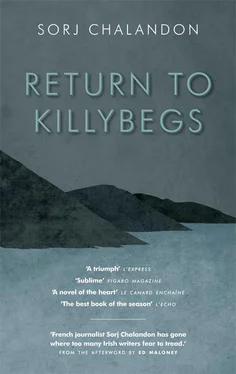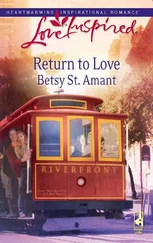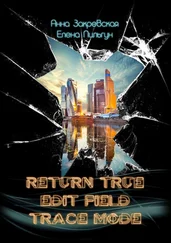When they asked me if I wanted to give up my place, I refused violently. I pushed the next bearer away with a kick as I spat on the ground. Tom Williams was mine. He had settled my burned mattress in our new house on Dholpur Lane in January 1942. He had shaken my hand and asked me to call him by his first name. I kept watch over our streets, for him. For him, I had learned my country’s history, I had boxed in the ring on Kane Street, I had attacked the enemy. It was he who had placed the first bullet in the palm of my hand. It was with him that I had fought, with him that I had given up the coloured Fianna uniform for the bloody clothes of a soldier. So let me be. Let me carry him another while, a few more metres, leave me be! It’s not just Tom in that coffin. Nobody knows that, eh? One evening I went to bed a scout in short trousers. The following morning I was this old man. And between the two, almost nothing. A fistful of hours. The smell of gunpowder, shit, turf and fog. So clear off!

I carried Tom. I bore my leader on my back, my friend, my brother. I brought him home. I was going to open his bed of earth and throw my childhood into it.
On 2 December 2006, we were invited to Deirdre’s wedding. She was the granddaughter of Pat Sheridan, another Kesh veteran. Something wasn’t right from the moment I walked in, the silence behind some looks. When I arrived with Sheila, the young bride was dancing on a pub table, arm in the air and glass raised. The room was packed. I went to sit down at our usual table. Our places had been kept. On the stage, a band was playing Sixties tunes. We had missed the national anthem, the father of the bride and husband’s speeches, and I wasn’t wearing a tie.
When she saw me, Deirdre beckoned, laughing.
— Tyrone! At last! Ten minutes later and you’d have been attending my divorce!
I winked and gave her the thumbs up. I hadn’t wanted to come. I was actually about to go to bed when Sheila insisted. She had slipped into her green velvet party dress with white frills and cuffs, and pierced her grey hair with a large black comb.
— Nobody will understand, Tyrone. And besides, I don’t want to lie to them.
I had complained of a pain in my head, then in my stomach and then I’d given up. I simply didn’t wish to go. Sheila placed my grey suit on the bed, smiling the while. So I got dressed, and then I followed her.

The pub had closed its bar for the evening. Everyone had come with their own drink. In my paper bag were six cans of Guinness and a flask of vodka. Sheila had brought a small bottle of gin and a large one of tonic water. Fruit juices were lined up on the bar so people could help themselves. There were two people at our table, Divis residents. Chairs arrived for us, passed from hand to hand over people’s heads, brushing against the white paper flowers bedecking the ceiling. Several minutes after we walked in, Sheila took off her shoes to dance. Just like that, stone-cold sober, with a slightly ridiculous enthusiasm. She was catching up on the evening, her drunken friends. When I went to the jacks, I bumped into the groom’s brother. We had been imprisoned together.
— Some night, eh Gerry? I said out of politeness while pissing loudly.
He was doing up his buttons.
— If you say so.
Gerry Sheridan had never been too talkative. In the Kesh, the screws called him ‘the Oyster’. He didn’t give them anything, not a word. He didn’t speak to us, either. But his face was made for smiling. That evening, Gerry didn’t turn his head. It was the first time. Maybe he was making me pay for being late.
We had missed the Mass, and the cavalcade on the Falls Road, with a British Saracen armoured car to lead the bridal party. The newly-weds had been stopped on the steps of the church by four fake soldiers in English uniform. Then they were driven to the club like that, in the midst of laughter and cheering, saluted by beeping, hoisted on the open turret, shouting their heads off. I didn’t like these games. Ten years earlier, we were looking at these khaki cockroaches from the sights of our rocket-launchers, and here were our children paying to drive around in them. They’d decorate them with flowers and paper chains, hang the national flag from the antenna, install loudspeakers and tear through the nationalist areas pumping out rock music and revving the engine.
— This is peace, Tyrone, Sheila would say, when an armoured car decorated for a celebration would roar past us.
She’d take my arm, laugh, raise a happy hand.
— Unlike you, they’ve succeeded in taking it over without firing a shot.
She’d tease me and I’d shake her off just long enough to pretend to be mad. I’d shout ‘Long live the IRA’, shaking my cap at arm’s length.

When I emerged from the bog, I looked over at Gerry Sheridan’s table. The Oyster was talking with Mickey, head to head. He turned towards me, and then Mickey looked at me too, his lips white.
When Mickey got out of prison, we fell into each other’s arms. Of all the combatants brought together to kill Popeye the screw, I was the only one to have got away with it. I had sold Mickey, and Terry went down shortly afterwards as did Jane, the girl on the bike who was supposed to take our guns. Even the two lads from Divis, our reinforcements, had been imprisoned.
Mickey had talked under torture. It was because of him that everyone had gone down and nobody had ever held it against him.
One time he’d been drinking, he publicly expressed surprise that I hadn’t been taken in.
— Why? Had he given them something on me?
Mickey protested. He’d said nothing! They didn’t know anything, but I was known in the ghetto, so they could have guessed I was involved, that was all. I frowned. I remember that moment perfectly.
— You’re sure you’ve nothing to tell me, Mickey?
My friend started trembling, his lips and his hands. The batons had knocked out half his teeth, his arm was crippled. He didn’t know what I was talking about, he swore he didn’t. He was panicking. I felt like a bastard, despicable, worse than the devil himself. He was pitiful. He had told them everything about me, everything. He had betrayed me in the blood, described every one of my gestures, every thought I’d expressed. All the British had to do was gather me up like fallen fruit. For weeks, he’d been afraid of seeing me pass his cell door. Feared seeing my smashed face and the look I’d give him before asking for an explanation. Then, over the years, he’d hoped I’d be arrested. He’d prefer to face my anger than have doubts about me. And he’d waited for me. In vain. Then he understood that my freedom had had a price, and that he was the cost.
In one another’s arms, on his release from prison, we were bound together. He with his secret, and me with mine. We were going to have to confront peace, injured by this silence. Since then, we’d avoided each other. I am still Tyrone, he is still Mickey, but in laying down our arms we have buried the truth.
There couldn’t have been contempt in that look, surely? Not that, not for me. I must have stumbled into a painful conversation between the two men. Those late-night confessions that drunkenness demands. Mickey had been widowed only nine days previously. He said that without his wife and without his war, there was nothing left in his life. That was it. I had just stumbled over Mickey’s sorrow, his distress faced with grief and peace, that was all.
Читать дальше













